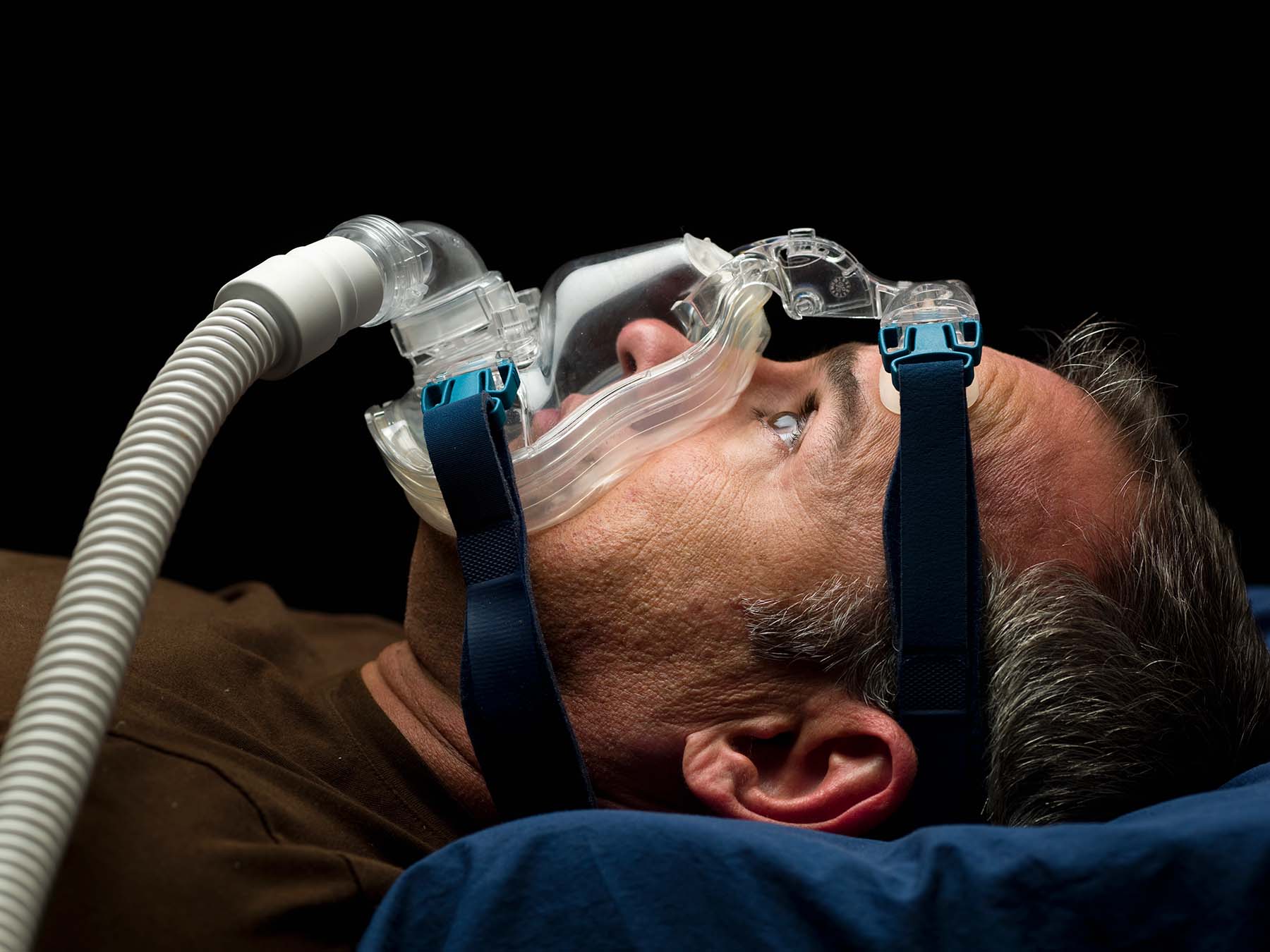What’s the Connection Between Sleep Apnea and Glaucoma?

If you have obstructive sleep apnea (OSA), you are about 10 times more likely to develop glaucoma.
Why does this sleep-related breathing disorder put you at risk for a progressive eye disease that can lead to irreversible vision loss? Ophthalmologists, sleep specialists, and cardiologists are working to understand the relationship between these two significantly different conditions.
“There is no slam dunk here, but certain findings suggest a potential association between sleep apnea and glaucoma,” says Swarup Swaminathan, M.D., an ophthalmologist who specializes in glaucoma at Bascom Palmer Eye Institute.
“The data are controversial on this topic. Many studies say yes, and many studies say no, partially because of how difficult it is to study this topic; there is no clear causation.”
What can happen to your eyes when you have sleep apnea?
- The retina and optic nerve require constant blood flow. OSA causes vascular changes, including insufficient blood supply and nourishment to the retinal nerve fiber layer and optic nerve.
- OSA episodes cause low oxygen levels in your body tissues (called hypoxia). Prolonged hypoxia damages the eye’s neurons and cells (optic nerve head and retinal ganglion cells). Hypoxia can also cause oxidative stress and inflammation, which leads to mitochondrial dysfunction of retinal ganglion cells and glaucoma.
- Some studies have shown that there may be a higher incidence of glaucoma and an increased progression of glaucoma among people with nocturnal hypotension (low blood pressure while sleeping).
- Elevated eye pressure is a risk factor for the incidence and progression of glaucoma. Some studies have shown that hypertension (high blood pressure) has been associated with elevated eye pressure. Hypertension is both a risk factor for and a symptom of OSA.
What does this mean for people with glaucoma or sleep apnea?
“Both glaucoma and sleep apnea patients should ensure that they get regular eye exams. That is the most important thing,” Dr. Swaminathan says.
“If you receive an annual eye exam, your optometrist or ophthalmologist can identify any abnormalities and refer you to a glaucoma specialist for monitoring and treatment. However, I do not believe that current studies support any additional monitoring for individuals with OSA.”
If you wear a CPAP machine while sleeping, “the mouthpiece, if malpositioned, can push on your eye and inadvertently cause an increase in eye pressure,” Dr. Swaminathan says. “It is important to ensure that your CPAP device is well positioned and not in contact with your eyes.”
How to lower your risk for OSA and glaucoma:
- Maintain a healthy weight.
- Get regular cardiovascular exercise.
- Don’t smoke.
- Get enough quality sleep.
- Drink less alcohol.
- Consume less caffeine.
- Take blood pressure management medications as prescribed.
- Take eye pressure medication (eye drops) as prescribed.
- Improve your diet: The Dietary Approaches to Stop Hypertension (DASH diet), the Mediterranean Diet, and a diverse plant-based diet can lower blood pressure and improve cardiovascular health.
- Schedule your annual exam with an eye professional.
Get your obstructive sleep apnea under control.
UHealth’s sleep medicine specialists perform sleep endoscopies and sleep studies and provide comprehensive OSA therapies, including myofunctional therapy, minimally invasive upper airway stimulation, and endoscopic sinus surgery.
To be evaluated for sleep apnea, call UHealth’s sleep medicine specialists at 305-243-9999 (ZZZZ) or request an appointment.
Help maintain your vision with expert care.
The experts at Bascom Palmer Eye Institute diagnose and treat glaucoma with advanced technologies and opportunities to participate in clinical trial studies of emerging treatments.
To schedule your next eye exam, call 800-329-7000 or request an appointment.
Dana Kantrowitz is a contributor for UHealth’s news service.
Tags: central sleep apnea, diagnosis of obstructive sleep apnea, Dr. Swarup Swaminathan, eye care in Miami, open-angle glaucoma, sleep disorders, sleep medicine, treat obstructive sleep apnea
